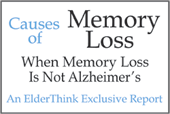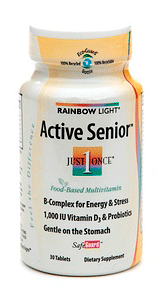
Heart Disease and Alzheimer's
Gretchen Heuring for ElderThink
Researchers have discovered that people who are at risk for heart disease or who have heart disease, are also at risk for Alzheimer's. Let's take a closer look.
The Role of Nitric Oxide
Our bodies produce Nitric Oxide (NO) in many ways. NO is especially important to vascular function and proper blood flow and NO is generated as part of the immune response. The big job that NO does for us is to widen our blood vessels and so improve the delivery of oxygen and nutrients to our bodies. People who are at risk for heart disease also show a deficiency in NO in the layer of cells lining the blood vessels. That layer of cells is called the endothelium.
Risk factors for heart disease include high cholesterol, diabetes, hypertension, smoking, and sedentary lifestyle. All of these have been associated with loss of nitric oxide in the endothelium, a condition known as endothelial dysfunction, according to Dr. Zvonimir S. Katusic, professor of anesthesiology and pharmacology at the Mayo Clinic.
Researchers Study Inhibited Nitric Oxide
Dr. Katusic led a research team in a study to learn if endothelial dysfunction could lead to Alzheimer's Disease. They discovered that inhibiting Nitric Oxide production led to an increase in amyloid precursor protein, the raw material for amyloid plaques.
How Do We Improve?
How do we improve our NO production? Every time we exercise enough to break a sweat, we stimulate the endothelium to produce more Nitric Oxide.
Nobel Prize for Work on Nitric Oxide and Heart Disease
In 1998, Dr. Louis J. Ignarro, at the UCLA School of Medicine, was awarded a nobel prize for discovering that heart attack and stroke could be prevented with Nitric Oxide. His work revealed that increased NO can lower blood pressure, inhibit clots, reduce arterial plaque, and lower cholesterol.
Now, the new work with NO and Alzheimer's by Dr. Katusic at the Mayo Clinic, reveals that increased NO decreases the formation of amyloid plaque.
Are There Nitric Oxide Supplements?
Unfortunately, NO is a gas and disappears rapidly in the air. But there are supplements that increase NO in the blood vessels. According to Dr. Ignarro (our Nobel Prize winner) these supplements are available at health-food stores and have few if any side effects. He recommends L-arginine, 2,000 to 3,000 milligrams twice per day and L-citruline, 400 to 600 milligrams per day. They should be taken together.
Nobel Prize Winner, Dr. Louis J. Ignarro, talks about Nitric Oxide and heart disease. |




